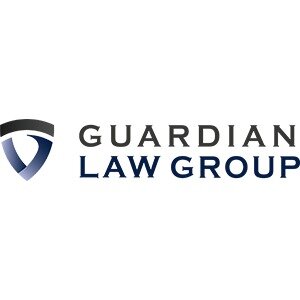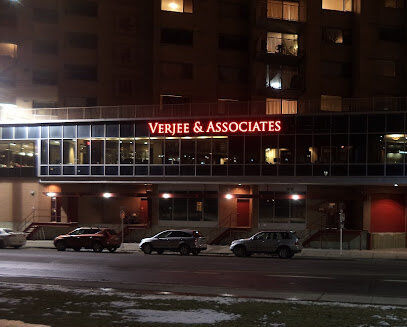Best Property Insurance Lawyers in Calgary
Share your needs with us, get contacted by law firms.
Free. Takes 2 min.
List of the best lawyers in Calgary, Canada
About Property Insurance Law in Calgary, Canada
Property insurance law in Calgary, Canada, provides individuals and businesses with financial protection against risks associated with property ownership. This includes coverage for damages caused by natural disasters, theft, vandalism, and other unforeseen events. Property insurance encompasses both commercial and residential properties, ensuring that policyholders receive compensation to repair or replace damaged assets. This area of law is regulated by both provincial and federal legislation, ensuring that insurance providers adhere to fair and reasonable practices.
Why You May Need a Lawyer
People often seek legal assistance in property insurance when disputes arise between the policyholder and the insurance company. Some common situations include:
- Claim Denials: When an insurance company denies a valid claim, a lawyer can help contest the decision and provide representation.
- Coverage Disputes: Disagreements over policy coverage or interpretation of terms may require legal clarification and negotiation.
- Underpayment of Claims: If the compensation offered is insufficient, lawyers can assist in negotiating a fair settlement.
- Legal Compliance: Ensuring that insurance contracts are compliant with local laws and regulations can be complex, requiring legal oversight.
- Advice on Policy Purchases: Lawyers can provide guidance in selecting appropriate insurance policies that meet specific needs and legislative requirements.
Local Laws Overview
In Calgary, several local laws and regulations impact property insurance, including:
- Insurance Act of Alberta: This is the primary legislation governing the operations of insurance companies within the province, outlining the rights and obligations of insurers and insured parties.
- Statutory Conditions: Standard conditions are laid out in policies according to the act, which must be adhered to by all property insurance agreements.
- Fair Practices Regulations: These aim to protect consumers by enforcing transparency, providing cancellation rights, and regulating the handling of claims.
- Consumer Protection Legislation: This protects policyholders from unfair practices and ensures fair treatment by insurance providers.
Frequently Asked Questions
What does property insurance typically cover in Calgary?
Property insurance generally covers damages caused by events such as fire, theft, vandalism, and certain natural disasters. Policies may vary, so reviewing the specific terms and coverage limits is essential.
How can I challenge a denied insurance claim?
Start by reviewing the denial letter for specifics, gather supporting documents, and contact your insurer for clarification. If unresolved, consulting with a lawyer could help in contesting the denial effectively.
Are floods covered under standard property insurance policies?
Flood damage is typically not covered under standard home insurance policies in Alberta. Flood insurance must be purchased separately as an add-on.
What should I do after making a property damage claim?
Document the damage with photos and videos, keep records of communications with the insurer, and meet any immediate requirements posed by them to mitigate further damage.
What is replacement cost coverage?
Replacement cost coverage ensures that you receive compensation to rebuild or replace damaged property with materials of like kind and quality without depreciation deductions.
Can I cancel my property insurance policy at any time?
Yes, you can cancel your policy, but you may be required to provide written notice and potentially incur a cancellation fee depending on the terms of your policy.
What are the consequences of underinsurance?
Underinsurance can result in receiving only partial compensation for damages, leaving you financially responsible for the shortfall during loss recovery.
How can I determine the right amount of coverage for my property?
Consult with insurance advisors to evaluate your property's value, potential risks, and liabilities to determine adequate coverage limits.
Is coverage for personal belongings included in my property insurance policy?
Most standard property insurance policies include personal property coverage, but it’s important to verify the specific limits and exclusions in your policy.
What's the difference between actual cash value and replacement cost?
Actual cash value policies consider the depreciation of property over time, offering less payout, whereas replacement cost policies reimburse the cost to replace the property without depreciation.
Additional Resources
For those seeking more information or support, the following resources and organizations can be useful:
- Insurance Bureau of Canada (IBC): Provides guidance and educational resources about property insurance.
- Alberta Superintendent of Insurance: Regulates the insurance industry within Alberta, ensuring compliance with legislative requirements.
- Calgary Chamber of Commerce: Offers resources and networking for business owners to learn about various insurance needs and solutions.
- Consumer Protection Alberta: Provides support for individuals facing disputes with insurance companies.
Next Steps
If you require legal assistance with property insurance matters in Calgary, consider the following steps:
- Research: Gather as much information as possible about your insurance policy and the issue at hand.
- Consultation: Seek a consultation with a property insurance lawyer to understand your rights and legal options.
- Document Everything: Keep detailed records of all communications and documentation related to your insurance claim or policy.
- Choose a Lawyer: Select a lawyer with a strong background and experience in handling property insurance cases in Alberta.
- Legal Representation: If necessary, have the lawyer represent you to negotiate settlements or pursue litigation to resolve your legal issues.
Lawzana helps you find the best lawyers and law firms in Calgary through a curated and pre-screened list of qualified legal professionals. Our platform offers rankings and detailed profiles of attorneys and law firms, allowing you to compare based on practice areas, including Property Insurance, experience, and client feedback.
Each profile includes a description of the firm's areas of practice, client reviews, team members and partners, year of establishment, spoken languages, office locations, contact information, social media presence, and any published articles or resources. Most firms on our platform speak English and are experienced in both local and international legal matters.
Get a quote from top-rated law firms in Calgary, Canada — quickly, securely, and without unnecessary hassle.
Disclaimer:
The information provided on this page is for general informational purposes only and does not constitute legal advice. While we strive to ensure the accuracy and relevance of the content, legal information may change over time, and interpretations of the law can vary. You should always consult with a qualified legal professional for advice specific to your situation.
We disclaim all liability for actions taken or not taken based on the content of this page. If you believe any information is incorrect or outdated, please contact us, and we will review and update it where appropriate.













